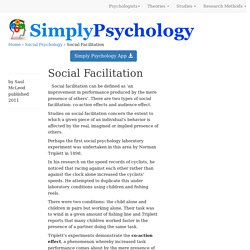

Ethical Principles of Psychologists and Code of Conduct. 8.01 Institutional Approval When institutional approval is required, psychologists provide accurate information about their research proposals and obtain approval prior to conducting the research.

They conduct the research in accordance with the approved research protocol. (b) Psychologists conducting intervention research involving the use of experimental treatments clarify to participants at the outset of the research (1) the experimental nature of the treatment; (2) the services that will or will not be available to the control group(s) if appropriate; (3) the means by which assignment to treatment and control groups will be made; (4) available treatment alternatives if an individual does not wish to participate in the research or wishes to withdraw once a study has begun; and (5) compensation for or monetary costs of participating including, if appropriate, whether reimbursement from the participant or a third-party payor will be sought.
Five principles for research ethics. Not that long ago, academicians were often cautious about airing the ethical dilemmas they faced in their research and academic work, but that environment is changing today.

Psychologists in academe are more likely to seek out the advice of their colleagues on issues ranging from supervising graduate students to how to handle sensitive research data, says George Mason University psychologist June Tangney, PhD. "There has been a real change in the last 10 years in people talking more frequently and more openly about ethical dilemmas of all sorts," she explains. Indeed, researchers face an array of ethical requirements: They must meet professional, institutional and federal standards for conducting research with human participants, often supervise students they also teach and have to sort out authorship issues, just to name a few.
Here are five recommendations APA's Science Directorate gives to help researchers steer clear of ethical quandaries: 1. The same rules apply to students. 2. 3. 4. BPS Ethical Guidelines. Ethical Issues in Psychology. Find information on ethical issues faced by treatment providers and researchers and well as facts concerning laws and historic cases in psychology.

Code_of_ethics_and_conduct. Ethics & Standards. Ethics is central to everything we do whether in research or practice.

The Society provides helpful guidelines for researchers, teachers and practitioners. This includes: Newly Launched Resources: Guidance on Teaching and Assessment of Ethical Competence in Psychology Education Plus other policy documents and guidelines, which you may find useful. Our Press Centre offers ethical guidance to journalists and television production companies through the Media Ethics Group. We have developed the following helpful responses to ethical queries received from members. Psychology Research Ethics. By Saul McLeod published 2007, updated 2015 Ethics refers to the correct rules of conduct necessary when carrying out research.

We have a moral responsibility to protect research participants from harm. However important the issue under investigation psychologists need to remember that they have a duty to respect the rights and dignity of research participants. This means that they must abide by certain moral principles and rules of conduct. In Britain ethical guidelines for research are published by the British Psychological Society and in America by the American Psychological Association. Moral issues rarely yield a simple, unambiguous, right or wrong answer.
The Asch Experiment - Understanding Conformity in Groups. By Kendra Cherry Quick Overview: The Asch conformity experiments were a series of psychological experiments conducted by Solomon Asch in the 1950s.The experiments revealed the degree to which a person's own opinions are influenced by those of groups.Asch found people were willing to ignore reality and give an incorrect answer in order to conform to the rest of the group.

Do you think of yourself as a conformist or a non-conformist? If you are like most people, you probably believe that you are non-conformist enough to stand up to a group when you know you are right, but conformist enough to blend in with the rest of your peers. Imagine yourself in this situation: You've signed up to participate in a psychology experiment in which you are asked to complete a vision test. Seated in a room with the other participants, you are shown a line segment and then asked to choose the matching line from a group three segments of different lengths. Social Influence. Social influence is a major topic in social psychology and looks at how individual thoughts, actions and feelings are influenced by social groups.

Learn more about various types of social influence including peer pressure, obedience, leadership, conformity and persuasion. What Is Persuasion? When you think about persuasion, what comes to mind? Learn more about how experts define persuasion and how contemporary persuasion differs from the past. Persuasion TechniquesEvery day we are faced with persuasion, especially in the form of advertisements.
The Milgram Obedience ExperimentMilgram's obedience experiment has become one of the most famous studies in psychology's history. Researchers Replicate Classic Milgram Obedience ExperimentLearn more about a recent study that replicated Milgram's famous experiment with some modifications to address the ethical concerns. What Is Diffusion of Responsibility? What Is Compliance? Social Facilitation. Social facilitation can be defined as ‘an improvement in performance produced by the mere presence of others’.

There are two types of social facilitation: co-action effects and audience effect. Studies on social facilitation concern the extent to which a given piece of an individual's behavior is affected by the real, imagined or implied presence of others. Perhaps the first social psychology laboratory experiment was undertaken in this area by Norman Triplett in 1898. In his research on the speed records of cyclists, he noticed that racing against each other rather than against the clock alone increased the cyclists' speeds. He attempted to duplicate this under laboratory conditions using children and fishing reels. There were two conditions: the child alone and children in pairs but working alone. Triplett's experiments demonstrate the co-action effect, a phenomenon whereby increased task performance comes about by the mere presence of others doing the same task.
References Chen, S.